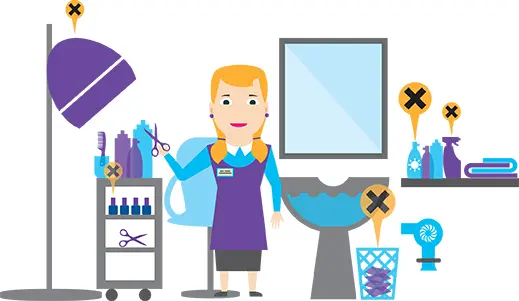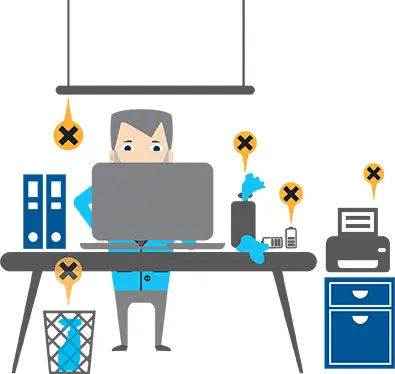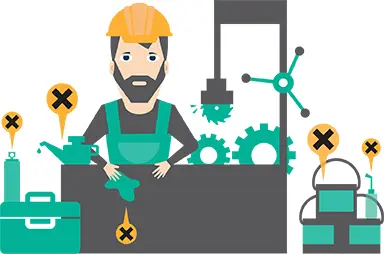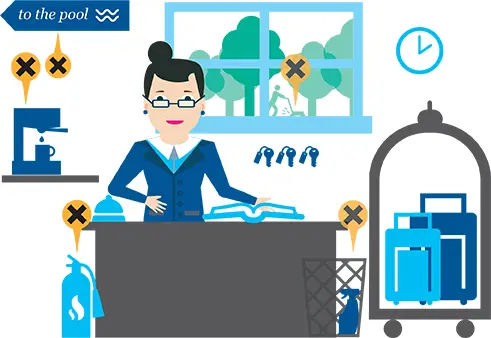Almost without exception, every business produces hazardous waste. Most people don’t realise that items that are commonplace in our places of work fall into the hazardous waste category.
Chris Edwards, Technical Manager, explains what everyday hazardous waste is found around the workplace and how managing this might be easier than you would think:
“At home we think nothing of throwing away a can of deodorant, a kitchen cleaner spray or a bottle of bleach into the general rubbish.
Depending on local authority recycling policy, we might separate out some of the plastic containers, but generally all these types of waste will simply be picked up at the kerbside.
At work though, thanks to Environment Agency legislation it’s a different story, and most people don’t realise is that in a business or office environment, everyday items such as cleaning chemicals, batteries, aerosols and even toner cartridges fall into the hazardous waste category.
To help explain exactly what we mean, we took four different scenarios and highlighted just a few of the hazardous waste items which can be found lurking in cleaning cupboards, on office desks, on a factory production line and in a hotel environment.
Hair and beauty salon waste

- Peroxides, hair spray, nail varnish and nail varnish remover, gels, bleaches and hair colourants, tanning products, aerosols, cleaning chemicals, batteries, fluorescent tubes
Office waste

No matter how big or small your office is, we can be pretty sure you’ll have some of these items on or around your desk:
- Toner and printer cartridges, computer cleaning wipes, batteries, disinfectant, cleaning or polish sprays, batteries, fluorescent tubes, glues, computer screens, laptops and other electrical equipment, smoke alarms
Factory/manufacturing waste

- Paints, aerosols, batteries, paints, photochemicals and maintenance waste such as oils, resins, adhesives and greases; as well as contaminated rags, wipes, PPE and absorbents, contaminated packaging (ie: empty chemical or cement bags), any toxic, radioactive or flammable materials
Hotels/leisure centres waste

The focus for guests might be on relaxation and enjoyment, but for staff, the disposal of hazardous waste can be made equally simple if they follow the rules:
- Outdated electrical or housekeeping equipment, such as fridges, TVs, toasters and other kitchen items, old fire extinguishers, cleaning chemicals and bleaches, batteries, fertilisers and other chemicals for ground maintenance
There is an easy solution to the management of small hazardous waste and that’s the Haz-Box, a specially-designed 55-litre lidded plastic box which can be used to store mixed hazardous wastes safely, prior to a pre-organised collection at a time that is convenient for you.
If you take 10 minutes to look around your workplace and identify just some of the items we’ve listed here, then the Haz-Box could be just what you’re looking for.
Bigger items for disposal such as unwanted computer equipment, telephones, florescent lighting tubes or televisions can be collected via our separate Waste Electrical and Electronic Equipment (WEEE) service.
Don’t risk your reputation – and that of your business – by getting it wrong.”
To speak to a member of our team about how Grundon can provide you with small volume hazardous waste collection, recycling and disposal as part of our total waste management service please contact us on:
